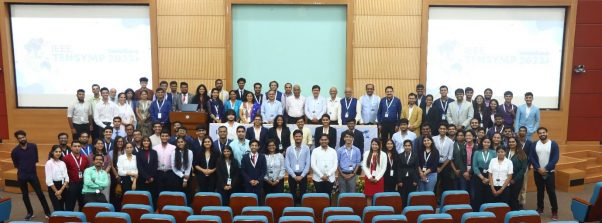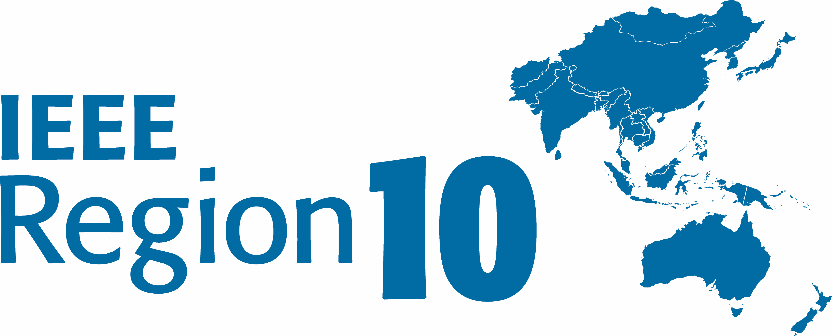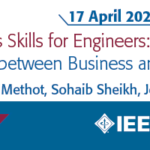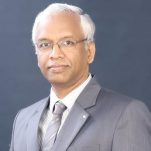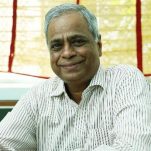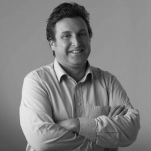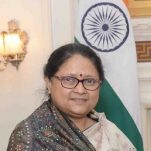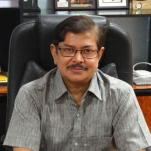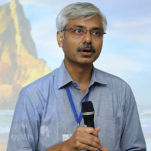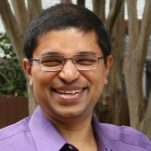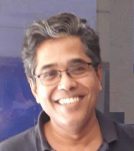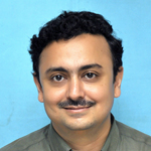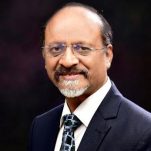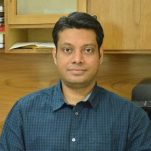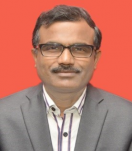9th January 2022, Virtual Meeting
Prepared by: Satyanarayana Bheesette, Chair for IEEE Bombay Section and General Chair for IEEE TENSYMP2022
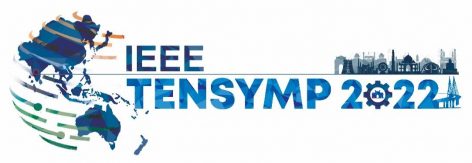
Bombay Section has successfully organized TENCON1989, the flagship conference of the Regional 10. Attended by more than 3000 delegates from across 29 countries, it was simultaneously organized in three top hotels in, then, Bombay. The conference organizational standard TENCON1989 has set can be gauged by noting that those were the non-internet snail mail days!
Inspired by this rich legacy, the Bombay Section has successfully bid to organize TENSYMP2022. The Section was grateful to IEEE Region 10 for trusting us to host another one of its flagship events. The Symposium was organized in hybrid mode from 1st to 3rd July 2022 at the iconic Victor Menezes Convention Centre (VMCC), Indian Institute of Technology (IIT) Bombay, India.
The chosen theme of the Symposium was “Technologies on the Horizon for the Benefit of Humanity”. The topics of the Symposium included Sensors and IoT Applications in Health and Agriculture; Antenna, Microwave and RF Engineering; New Engineering and Technologies for Electric Vehicles; Technologies at Work for Natural Disaster and Pandemic Mitigation; Signal Processing and Machine Vision; Low Power VLSI Devices; Circuits and Systems; Power Electronics and Systems; Renewable Energy Technologies; Technology Enablers for Industry 5.0 and Automation; AI and Blockchain Paradigms for the Changing World; Novel Education Technologies in the New Normal; and Humanitarian and Social Impacts of Technologies.
One of the unique features of this edition of TENSYMP is the design of a special logo for the event. The logo very creatively incorporates the R10 geography along with motifs that represent the diverse Indian culture as well as prominent landmarks of the venue city, Mumbai. A very informative and up-to-date web page (https://www.ieeebombay.org/tensymp2022/), multiple WhatsApp groups, and a user-friendly payment gateway have provided efficient communication and a pleasant experience to the Symposium authors and participants.
The Symposium was immensely benefited by the distinguished panel of the International Advisory Committee as well as the Technical Programme Committee (TPC) consisting of well-known experts of international repute in various domains as listed in the topics above. In response to the Call for Papers (CFP), about 640 papers were received covering original research, advances, and emerging applications on state-of-the-art topics. EDAS was used as the integrated conference management platform. Out of the 404 papers considered for review, 276 papers were accepted (68.3% acceptance rate) for presentation after a thorough review process by about 500 specialist track chairs and reviewers of the respective tracks. In all, about 550 participants attended the Symposium. Manuscripts of 238 authors who presented their papers are going to be submitted to Xplore for publication.
TENSYMP2022 has been very proactive in encouraging young student authors to publish original research papers. 17 registered IEEE student first authors of meritorious papers were awarded grants to cover their TENSYMP2022 conference registration fees. Similarly, eight travel grants were awarded to student authors of meritorious papers to present their research work at TENSYMP2022. Further, to encourage the poster presenters, four best poster awards – two each among the physical and virtual presenters, were also declared.
The technical program of the Symposium was comprised of four keynote talks by eminent personalities and eight invited talks by practicing researchers of the Symposium tracks. Besides, four tutorial sessions by industry and academia leaders were organized especially for the benefit of younger participants and students. Finally, the Symposium program was also comprised of R10 and IEEE tracks such as IEEE Standards, Life Members Committee, and Industry Relations Committee, besides an Industry track by MathWorks.
The Symposium had a great start with the inaugural event graced by Dr. Suresh Nair (Chair, India Council), Prof. Yashwant Gupta (Centre Director, NCRA-TIFR and TPC Chair, TENSYMP2022), and Prof. K.V.S. Hari (IISc Bengaluru) and their very inspiring and motivating addresses. The highlight of the inaugural session was a video message by Prof. K. J. Ray Liu (President and CEO, IEEE), in which he shared his views on the vision for IEEE and exhorted that IEEE must be all our professional home.
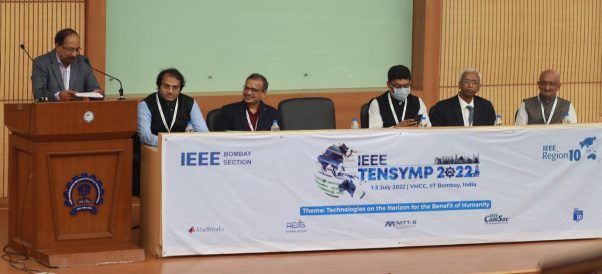
The keynote talks were delivered by Prof. K.V.S. Hari (Indian Institute of Science, Bengaluru, India, and Vice President-Membership, IEEE Signal Processing Society) on “Sensing and Signal Processing for Autonomous Navigation Applications – Case Studies”, Prof. Ashok Jhunjhunwala (President, IITM Research Park, IITM Incubation Cell and RTBI, India) on “Moving India Towards Net-Zero”, Dr. Anthony Butler (Professor and Head, Department of Radiology, University of Otago, Christchurch, New Zealand) on “Colour X-ray for Medicine” and Prof. Sanghamitra Bandyopadhyay (Director, Indian Statistical Institute, Kolkata, India) on “AI in Healthcare”.
The invited talks were delivered by Prof. Rahul Banerjee (Director LNMIT Jaipur) on “A Blockchain-Enabled Trustworthy Intelligent Advisory System Architecture for Assisting Sports Coaches”, Prof. Amit Prakash (IIIT Bangalore) on “Embedding Inclusion in Technology Designs: Some Cases, Some Reflections”, Prof. Shriganesh Prabhu (TIFR Mumbai) on “Tera-Hertz (THz) Spectroscopy: Recent Trends”, Prof. Anil Prabhakar (IIT Madras) on “Empowering People with Assistive Devices”, Prof. Chirag Paunwala (Dean R&D, Sarvajanik College of Engineering & Technology, Surat) on “Early Diagnosis of Dyslexia based on EEG”, Dr. Satya Gupta (CEO, EPIC Foundation & President, VLSI Society of India) on “Making India a Semiconductor Nation”, Prof. Sandeep Anand (IIT Bombay) on “Role of Power Electronics in Renewable Integration” and Mr. Bikash Chandra Mallick (Chief Engineer, Thermal Project Renovation & Modernization, CEA) on “Carbon Net Zero and Sustainability”.
The tutorial sessions were organized by Dr. Arun Agarwal on “MIMO-OFDM and Channel Coding Techniques for 5G Networks”, Dr. Jayant Joshi on “Wearable and Flexible Antennas for Wireless and Mobile Communication Systems”, Dr. Mayuri Mehta on “The Increasing Role of AI and Explainable AI (XAI) in Healthcare” and Dr. Deepak Waikar on “Integrated Multidisciplinary-Holistic Engineering Education: An Alternative Pragmatic Perspective”.
And finally, the IEEE track sessions were conducted by Mr. Sri Chandra and Mr. Subramanian Chidambaram (IEEE Standards), Mr. R. K. Ashthana, Prof. Juzer Vasi and Mr. R. Muralidharan (R10 LMC track), Mr. Sanjay Kar Chowdhury (R10 IRC track) and Mr. Ramana Anchuri (Industry track).
The oral and virtual poster contributions were scheduled in 33 parallel sessions, besides a physical poster presentation. Besides the experienced session chairs who provided excellent guidance to the presenters, the energetic and efficient student volunteers, serving as session secretaries and technical experts have provided an excellent contribution to the success of the Symposium. A special mention must be made to the Bombay Section student volunteers for their outstanding contributions towards every aspect of the Symposium, which has made a big difference to its outcome.
One of the biggest spin-offs of the TENSYMP2022 was a special initiative called the “Student-Expert Interaction Program: DISHA”. The objective of this initiative was to provide a platform for discussions and interactions between expert invitee speakers with school children of low-income schools to inspire, encourage and motivate them towards STEM education and careers. About 50 students attended the interaction sessions by two of the invited speakers (Profs. Rahul Banerjee and Anil Prabhakar) at the conference venue and were full with questions to the experts.
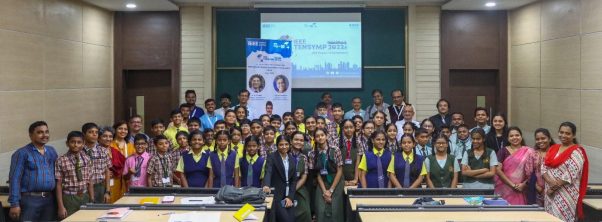
Another expert speaker (Prof. Shriganesh Prabhu) has mesmerized about 50 students of the Holy Cross High School, Mumbai with his lecture in the local language – Marathi, and his highly exciting science demonstrations, which glued the children to the podium.
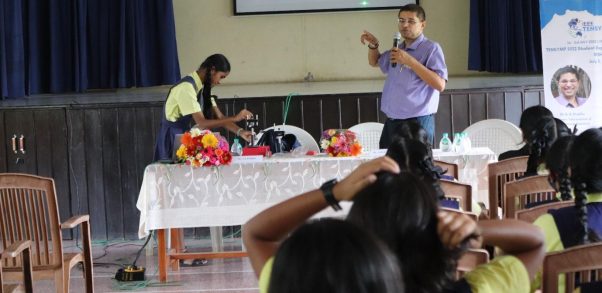
The valedictory function too was concluded on a high note with Mr. Deepak Mathur (R10 Director) as the Chief Guest. He appreciated the outstanding efforts of the Bombay Section in organizing the Symposium in spite of all the difficulties and uncertainties, such as the prevailing Covid-19 pandemic, and severe monsoon, to name a few. He also informed us about various opportunities which are now available at the Region level for the growth of the young volunteers. Finally, Mr. Mathur has also announced that the Australian Capital Territory (ACT) Section will host the TENSYMP2023. So, it is bye-bye, Bombay, see you in Canberra!
